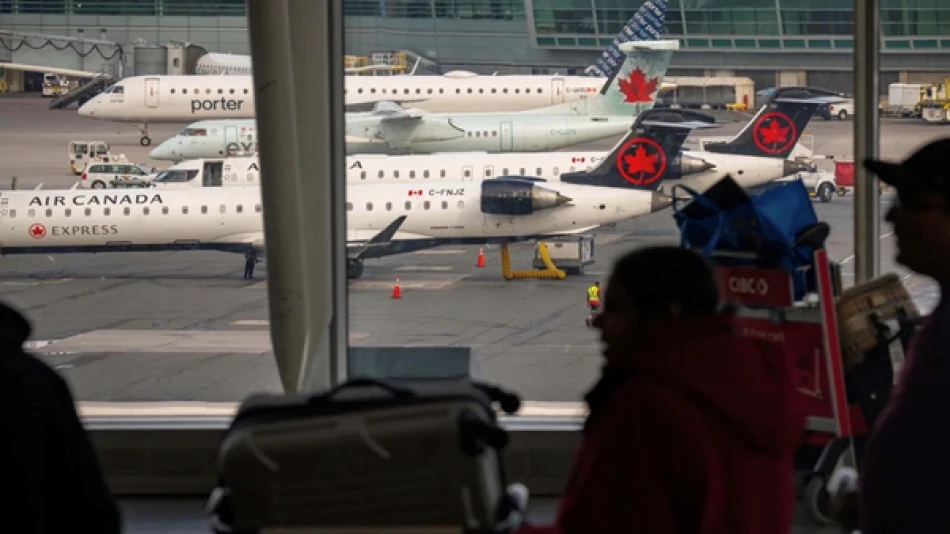
Air Canada Resumes Flights as Cabin Crew Return to Work
Air Canada Strike Ends After $140 Million Labor Deal Disrupts Half a Million Passengers
Air Canada is resuming operations Wednesday following a four-day flight attendant strike that stranded over 500,000 passengers, highlighting the growing power of aviation unions in post-pandemic labor negotiations. The tentative agreement, which could cost the airline up to CAD $140 million annually, signals a broader shift in airline labor dynamics as workers demand compensation for expanded duties introduced during COVID-19.
The Strike's Immediate Impact
The work stoppage, which began Saturday after contract negotiations collapsed, brought Canada's largest airline to a near-complete halt. Flight attendants walked off the job demanding compensation for unpaid duties, particularly passenger boarding assistance that became standard during the pandemic but was never formally compensated.
While Air Canada announced operations would restart immediately, the airline cautioned that returning to normal schedules would take several days. This recovery timeline reflects the complex logistics of repositioning aircraft, crew, and passengers across the carrier's extensive North American and international network.
Union Victory Sets New Industry Precedent
The flight attendants' union achieved a significant victory by securing compensation for previously unpaid duties. The union stated that assigning unpaid tasks to cabin crew would no longer be acceptable, establishing a precedent that could influence labor negotiations across the aviation industry.
This outcome mirrors similar labor victories at major US carriers, where flight attendants at American Airlines, Delta, and United have successfully negotiated substantial pay increases and duty clarifications following pandemic-era operational changes.
Financial Implications for Air Canada
According to Canaccord Genuity analyst Matthew Lee, the proposed wage increases could cost Air Canada up to CAD $140 million annually. While substantial, this figure represents roughly 1.5% of the airline's pre-pandemic revenue, suggesting the carrier can absorb the costs without fundamental operational changes.
The settlement comes as Air Canada has been rebuilding profitability following pandemic losses. The airline's willingness to accept these higher labor costs likely reflects strong travel demand and the critical importance of avoiding extended operational disruptions during peak travel periods.
Broader Industry Context
This strike reflects a global trend of aviation workers leveraging tight labor markets to secure better compensation. Airlines worldwide have faced similar pressures as experienced staff left the industry during the pandemic, creating leverage for remaining workers.
The focus on compensation for boarding duties is particularly significant, as airlines globally expanded cabin crew responsibilities during COVID-19 to reduce staffing costs and health risks. Air Canada's agreement to compensate these duties may pressure other carriers to follow suit, potentially reshaping industry labor standards.
For investors, the settlement removes immediate operational uncertainty while establishing clearer labor cost baselines for future financial planning. The relatively quick resolution also demonstrates management's pragmatic approach to labor relations, prioritizing operational stability over prolonged cost disputes.
Most Viewed News

 Layla Al Mansoori
Layla Al Mansoori






